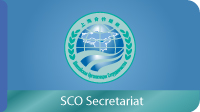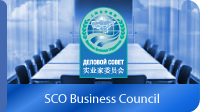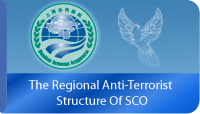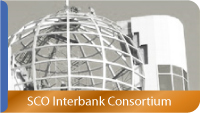|
|
 |
| News Conference following Shanghai Cooperation Organisation Summit |
| 17.06.2009 14:22 |
|
|
|
PRESIDENT OF RUSSIA DMITRY MEDVEDEV: Colleagues, ladies and gentlemen,
As president of the nation that just turned over its chairmanship of the SCO, I would like to tell you about some of the outcomes of our work within the meeting of the SCO Council of Heads of State. I would like to make a few general remarks before moving on to questions.
First, I’ll say straight away that although we had a great deal to talk about, we were able to discuss all of our concerns. We began our discussions yesterday, during an informal meeting (first in a restricted format, and later in an informal setting). Today, we continued our discussions in a new format that we hadn’t had before: in a restricted format that also included the heads of observer states, followed by a plenary session. Our discussions were honest, occurring in an atmosphere of mutual trust. We talked about prospects for developing the SCO and problems stemming from the global crisis, as well as our key topics of discussion: terrorism, drug trafficking, and everything else that concerns the Shanghai Cooperation Organisation’s member states.
Second, I would also like to talk about the final evaluations and agreements reflected in the joint communiquй, the Yekaterinburg Declaration. They will soon be uploaded to websites, so you will have a chance to read them. Most importantly, SCO members are determined to further develop our multifaceted cooperation on security issues and on strengthening of our economic and humanitarian ties. Today, we signed the SCO Convention Against Terrorism. This is a serious document and, I must admit, a long-awaited one. We signed the Regulations on political and diplomatic measures and mechanisms of reaction to situations endangering regional peace, security and stability.
The third matter we addressed was discussing cooperation on Afghanistan-related matters. There was an emphasis on implementing the agreements that were reached at a special SCO conference on Afghanistan which, as you recall, took place in March of this year, in Moscow, so the statement [by the Shanghai Cooperation Organization Member States and the Islamic Republic of Afghanistan on combating terrorism, illicit drug trafficking and organized crime] and the plan of action are being implemented.
We discussed other regional problems, including North Korea and some of the threatening statements it has recently made. We also noted that its behaviour is unacceptable in today’s situation and that the international community had to respond by adopting a corresponding [UN] Security Council resolution.
The fourth topic was the SCO member states’ response to challenges posed by the global crisis; rather, we began with that. We seem to have similar views here: we cannot be content with superficial changes, we need to react, and we need to create a new global system of financial security. We therefore need to tap into the Organisation’s potential, particularly by working within the SCO Business Council and the SCO Interbank Consortium. From time to time, we also need to bring together experts and give instructions to our finance ministers and the chairpersons of our central and national banks to meet and coordinate their macroeconomic positions.
Our fifth and equally important topic of discussion was humanitarian cooperation – cooperation in the area of education, culture, and ties between young people. We are already doing a lot in this area; we are planning to create a special SCO university, we are holding festivals, and we will be establishing a youth council.
We continued to work actively on public health issues focusing specifically on the most serious types of diseases, infectious diseases, and reacting to present-day health threats, including epidemics and pandemics. In May, a conference was held in Moscow addressing these issues.
We believe that one of the principles of the SCO’s work is being open to cooperating with other international organisations. During today’s meetings and discussions, two new states – Belarus and Sri-Lanka – were given the dialogue partner status. We also discussed the fact that countries with an observer status in the SCO must participate more actively in all formats of its work. This is a common position held by the Russian Federation and other countries.
We looked into organisational issues regarding the SCO Secretary-General and the director of the Executive Committee of the Regional Counter-Terrorism Structure. These two positions are filled by representatives from Kazakhstan and Kyrgyzstan, who will begin their duties in January 2010. We are passing our chairmanship on to Uzbekistan, and we wish our Uzbek colleagues success in this post, as I already said during the summit. But I am certain that our work will continue throughout the year in all different formats. The SCO is becoming a fundamental, serious, and universal platform for discussing a variety of matters – not just as an occasion or a place to discuss issues of relevance to the region, but as a mechanism for resolving them, as well. The SCO’s authority is increasing. Yesterday was the eighth anniversary of its formation, and I feel that these eight years have not been wasted. Furthermore, I think there are few organisations that are able to accumulate as much political and economic clout in just eight years; so overall, SCO member states have expressed satisfaction with its work. As the outgoing chairperson, I wanted to share some of these thoughts.
That’s about all that I wanted to say to begin with.
I am ready to take questions.
QUESTION: What was the main economic outcome of this summit and what can you say regarding a common supranational currency? All the leaders say that it is necessary, but they didn’t mention anything regarding a timetable and implementation. Do you have any comments on this?
DMITRY MEDVEDEV: Would you like me to tell you the secret of what this supranational currency will be called?
I will begin by talking about the economic results overall. Indeed, the SCO was created as a security organisation, but “security” can be broadly defined. This is particularly true when we all went from a normal economic state of affairs to an active, difficult economic crisis. As a result, the economy was at the centre of our attention today. It was not simply addressed from the same angle as, for example, at the G20 or G8 summits, or at the expanded G8 summit (meaning, the G8+5 group involved in the Heiligendamm process, the so-called Outreach Five format); it was also discussed on an entirely concrete level. After all, we have here a set of countries that are close to one another, that have historic and linguistic ties, and ties in many other areas.
We therefore discussed a number of infrastructure projects. Each country presented its own vision. We agreed that today, it is highly important to implement joint economic programmes. The People’s Republic of China announced its decision to allocate 10 billion dollars toward various SCO projects. This would not involve targeted assistance for countries suffering as a result of the crisis, since we already have other mechanisms to do this, including the ones that we are involved in. Instead, this funding would be directed toward joint economic projects that are based on normal commercial principles but are also trans-national. These projects will unify our countries and resolve long-lasting economic problems, including those related to infrastructure. This is a good initiative, and we welcome it.
We also discussed other kinds of projects, including ones in the energy sector, construction, and infrastructure. I feel that we now have fairly concrete plans for cooperation. It was also suggested that we pass and then ratify a number of conventions, including an SCO convention on protecting capital investments. I think that we will continue discussing all this in the future.
As for the fascinating topic of currency, we remarked on some clear facts. First of all, today’s reserve currencies have not quite been able to fulfil their functions (particularly the main reserve currency, the US dollar). The creation of a new reserve currency is a long process. Still, my own speeches and those of my colleagues have addressed the growing awareness that we simply cannot go without additional reserve currencies. Reserve currencies cannot be introduced through a presidential executive order or a decision by central banks. This is a process whereby an economy must gain prestige and other nations must want to maintain their reserves in a particular foreign currency. It is a common understanding that reserve currencies must not only circulate as a means of payment between countries, but also be used as a means of financial accumulation, to be used as financial instruments.
The problem is that currently, most financial instruments throughout the world are denominated in US dollars and, to a much smaller degree, in euros, with practically no other financial instruments remaining. Meanwhile, all nations are trying to diversify their financial investments, and many of them are now steering away from securities and financial instruments, focusing instead on acquiring tangible assets, which is also possible and necessary in certain situations. Still, our modern world cannot exist without financial instruments. Thus, given the current situation and the opportunities at our disposal, it is possible to discuss the promotion of new reserve currencies. We have said many times that we hope, given our historical context, that the Russian national currency may come to play this role.
Supranational currency is an even bigger topic. In order for it to work, all governments need to be unified in this cause. We have already talked about it at G20 meetings, and we understand that if we use the financial instruments currently being suggested by the International Monetary Fund (taking into account the volume of money, including national currencies, that pass through the IMF, this money will be used, among other things, for SDRs), we will most likely see the creation of a supranational currency, or a substitute thereof, which will be used, to a limited degree, in international payments.
We also expressed another idea supported by our colleagues, regarding the possibility of having a unit of account within the SCO. Perhaps such unit of account can subsequently be used for other, more serious purposes.
Let’s recall what was happening in the EU nations before the Euro was introduced as a real reserve currency: there was the ECU, which was not a supranational currency in the technical sense of the word, but which was nevertheless an accounting and payment unit that allowed payments to be made between countries, and in some cases, allowed loans to be granted. Thus, it was a fairly attractive instrument in principle.
I do not think we should fully copy this experiment, but I do think that it reflects an interesting direction. We will continue to work on this issue, because today’s architecture of the currency system is far from ideal, posing many risks, including inflation.
QUESTION: What specifically could Russia do to help Afghanistan resolve its problems, particularly within the new trilateral format that was tested yesterday? And have any of the other SCO member states made any specific proposals for settlement in Afghanistan?
DMITRY MEDVEDEV: Afghanistan was at the centre of our discussions. This was partially due to the presence of the President of Afghanistan, Mr Hamid Karzai. Today, it is already quite clear that this problem must not be regarded in isolation, but rather, within the general context. Thus, we discussed these issues bilaterally, but we also switched to a trilateral format; I therefore spoke with the President of Afghanistan, then with the President of Pakistan, and then with both of them.
What are the advantages of this approach? First, everyone understands that it is impossible to resolve the problems in Afghanistan without changing the situation in several provinces in Pakistan and without taking urgent measures to eliminate terrorist havens on Pakistan’s territory. Today, Pakistan’s leaders are dealing with these problems; I spoke with President Zardari about this, and it is a problem clearly recognised by everyone as an area for joint efforts. Thus, the problems in Afghanistan and Pakistan are, in my view, an issue that must be discussed by everyone participating in these talks and in other events concerning Afghanistan.
The Russian position is fairly concrete. We have always said that we are ready to help Afghanistan; I said the same thing to the President of Pakistan. We are ready to help on a political level, in cooperation with coalition countries, including through a set of corresponding measures for transit escort. But we are also ready to help in a bilateral or trilateral format, not only by making certain decisions, but also by implementing joint economic projects, including trilateral ones, because fighting terrorism and drug trafficking is a very difficult task, yet it must be followed by the implementation of a number of economic measures. Otherwise, unless we are able to resolve these urgent economic challenges, Afghanistan and parts of Pakistan will never be able to lead a normal life. In order to do this, we must implement a range of infrastructure projects. We have discussed projects of this kind in energy, road building and maintenance, and other kinds of infrastructure.
Given that we are close neighbours, I feel that these projects could be of political and economic interest. Thus, the institution of this trilateral format was also brought about because of Russia’s natural function as a co-sponsor in the settlement process in Afghanistan, and because of our economic considerations and suggestions in this area.
To me, this seems like a promising format. We will certainly continue to communicate with Afghanistan and Pakistan in this way. This should not take away from any other processes; on the contrary, this communication should have an additional, cumulative effect on our meetings.
Other countries have expressed all their concerns and suggestions. There was not a single speech at our summit that did not mention Afghanistan. Everyone touched on this topic, and naturally, everyone understands that this may be the most difficult regional problem that we face, one in which we must all participate, in one way or another, in order for Afghanistan to become whole and in order to help Afghanistan build a developed, modern, but domestic political structure. We are ready to continue working on this.
|
|
* Реестр иностранных средств массовой информации, выполняющих функции иностранного агента:
Голос Америки, Idel.Реалии, Кавказ.Реалии, Крым.Реалии, Телеканал Настоящее Время, Azatliq Radiosi, PCE/PC, Сибирь.Реалии, Фактограф, Север.Реалии, Радио Свобода, MEDIUM-ORIENT, Пономарев Лев Александрович, Савицкая Людмила Алексеевна, Маркелов Сергей Евгеньевич, Камалягин Денис Николаевич, Апахончич Дарья Александровна, Medusa Project, Первое антикоррупционное СМИ, VTimes.io, Баданин Роман Сергеевич, Гликин Максим Александрович, Маняхин Петр Борисович, Ярош Юлия Петровна, Чуракова Ольга Владимировна, Железнова Мария Михайловна, Лукьянова Юлия Сергеевна, Маетная Елизавета Витальевна, The Insider SIA, Рубин Михаил Аркадьевич, Гройсман Софья Романовна, Рождественский Илья Дмитриевич, Апухтина Юлия Владимировна, Постернак Алексей Евгеньевич, Общество с ограниченной ответственностью Телеканал Дождь, Петров Степан Юрьевич, Istories fonds, Шмагун Олеся Валентиновна, Мароховская Алеся Алексеевна, Долинина Ирина Николаевна, Шлейнов Роман Юрьевич, Анин Роман Александрович, Великовский Дмитрий Александрович, Альтаир 2021, Ромашки монолит, Главный редактор 2021, Вега 2021
* Сведения реестра НКО, выполняющих функции иностранного агента:
Фонд защиты прав граждан Штаб, Институт права и публичной политики, Лаборатория социальных наук, Фонд по борьбе с коррупцией, Альянс врачей, НАСИЛИЮ.НЕТ, Мы против СПИДа, Фонд защиты прав граждан, СВЕЧА, Гуманитарное действие, Открытый Петербург, Феникс ПЛЮС, Лига Избирателей, Правовая инициатива, Гражданская инициатива против экологической преступности, Фонд борьбы с коррупцией, Гражданский Союз, Российский Красный Крест, Центр Хасдей Ерушалаим, Центр поддержки и содействия развитию средств массовой информации, Горячая Линия, В защиту прав заключенных, Институт глобализации и социальных движений, Центр социально-информационных инициатив Действие, ВМЕСТЕ, Благотворительный фонд охраны здоровья и защиты прав граждан, Благотворительный фонд помощи осужденным и их семьям, Фонд Тольятти, Новое время, Серебряная тайга, Так-Так-Так, центр Сова, центр Анна, Проект Апрель, Самарская губерния, Эра здоровья, правозащитное общество Мемориал, Аналитический Центр Юрия Левады, Издательство Парк Гагарина, Фонд имени Андрея Рылькова, Сфера, Центр защиты СИБАЛЬТ, Уральская правозащитная группа, Женщины Евразии, Рязанский Мемориал, Екатеринбургское общество МЕМОРИАЛ, Институт прав человека, Фонд защиты гласности, Российский исследовательский центр по правам человека, Дальневосточный центр развития гражданских инициатив и социального партнерства, Пермский региональный правозащитный центр, Гражданское действие, Центр независимых социологических исследований, Сутяжник, АКАДЕМИЯ ПО ПРАВАМ ЧЕЛОВЕКА, Частное учреждение Совета Министров северных стран, Центр развития некоммерческих организаций, Гражданское содействие, Центр Трансперенси Интернешнл-Р, Центр Защиты Прав Средств Массовой Информации, Институт развития прессы - Сибирь, Фонд поддержки свободы прессы, Гражданский контроль, Человек и Закон, Общественная комиссия по сохранению наследия академика Сахарова, Информационное агентство МЕМО. РУ, Институт региональной прессы, Институт Развития Свободы Информации, Экозащита!-Женсовет, Общественный вердикт, Евразийская антимонопольная ассоциация, Чанышева Лилия Айратовна, Сидорович Ольга Борисовна, Таранова Юлия Николаевна, Туровский Александр Алексеевич, Васильева Анастасия Евгеньевна, Ривина Анна Валерьевна, Бурдина Юлия Владимировна, Бойко Анатолий Николаевич, Гусева Ольга Андреевна, Дугин Сергей Георгиевич, Пивоваров Андрей Сергеевич, Писемский Евгений Александрович, Аверин Виталий Евгеньевич, Барахоев Магомед Бекханович, Шевченко Дмитрий Александрович, Жданов Иван Юрьевич, Рубанов Роман Викторович, Шарипков Олег Викторович, Мальсагов Муса Асланович, Мошель Ирина Ароновна, Шведов Григорий Сергеевич, Пономарев Лев Александрович, Каргалицкий Борис Юльевич, Созаев Валерий Валерьевич, Исакова Ирина Александровна, Исламов Тимур Рифгатович, Романова Ольга Евгеньевна, Щаров Сергей Алексадрович, Цирульников Борис Альбертович, Халидова Марина Владимировна, Людевиг Марина Зариевна, Федотова Галина Анатольевна, Паутов Юрий Анатольевич, Верховский Александр Маркович, Пислакова-Паркер Марина Петровна, Кочеткова Татьяна Владимировна, Чуркина Наталья Валерьевна, Акимова Татьяна Николаевна, Золотарева Екатерина Александровна, Рачинский Ян Збигневич, Жемкова Елена Борисовна, Гудков Лев Дмитриевич, Илларионова Юлия Юрьевна, Саранг Анна Васильевна, Захарова Светлана Сергеевна, Аверин Владимир Анатольевич, Щур Татьяна Михайловна, Щур Николай Алексеевич, Блинушов Андрей Юрьевич, Мосин Алексей Геннадьевич, Гефтер Валентин Михайлович, Симонов Алексей Кириллович, Флиге Ирина Анатольевна, Мельникова Валентина Дмитриевна, Вититинова Елена Владимировна, Баженова Светлана Куприяновна, Исаев Сергей Владимирович, Максимов Сергей Владимирович, Беляев Сергей Иванович, Голубева Елена Николаевна, Ганнушкина Светлана Алексеевна, Закс Елена Владимировна, Буртина Елена Юрьевна, Гендель Людмила Залмановна, Кокорина Екатерина Алексеевна, Шуманов Илья Вячеславович, Арапова Галина Юрьевна, Пастухова Анна Яковлевна, Прохоров Вадим Юрьевич, Шахова Елена Владимировна, Подузов Сергей Васильевич, Протасова Ирина Вячеславовна, Литинский Леонид Борисович, Лукашевский Сергей Маркович, Бахмин Вячеслав Иванович, Шабад Анатолий Ефимович, Сухих Дарья Николаевна, Орлов Олег Петрович, Добровольская Анна Дмитриевна, Королева Александра Евгеньевна, Смирнов Владимир Александрович, Вицин Сергей Ефимович, Золотухин Борис Андреевич, Левинсон Лев Семенович, Локшина Татьяна Иосифовна, Орлов Олег Петрович, Полякова Мара Федоровна, Резник Генри Маркович, Захаров Герман Константинович
* Единый федеральный список организаций, в том числе иностранных и международных организаций, признанных в соответствии с законодательством Российской Федерации террористическими:
Высший военный Маджлисуль Шура, Конгресс народов Ичкерии и Дагестана, Аль-Каида, Асбат аль-Ансар, Священная война, Исламская группа, Братья-мусульмане, Партия исламского освобождения, Лашкар-И-Тайба, Исламская группа, Движение Талибан, Исламская партия Туркестана, Общество социальных реформ, Общество возрождения исламского наследия, Дом двух святых, Джунд аш-Шам, Исламский джихад, Аль-Каида, Имарат Кавказ, АБТО, Правый сектор, Исламское государство, Джабха аль-Нусра ли-Ахль аш-Шам, Народное ополчение имени К. Минина и Д. Пожарского, Аджр от Аллаха Субхану уа Тагьаля SHAM, АУМ Синрике, Муджахеды джамаата Ат-Тавхида Валь-Джихад, Чистопольский Джамаат, Рохнамо ба суи давлати исломи, Террористическое сообщество Сеть, Катиба Таухид валь-Джихад, Хайят Тахрир аш-Шам, Ахлю Сунна Валь Джамаа
* Перечень общественных объединений и религиозных организаций в отношении которых судом принято вступившее в законную силу решение о ликвидации или запрете деятельности:
Национал-большевистская партия, ВЕК РА, Рада земли Кубанской Духовно Родовой Державы Русь, Асгардская Славянская Община Асгардской Веси Беловодья, Славянская Община Капища Веды Перуна, Мужская Духовная Семинария Староверов-Инглингов, Нурджулар, К Богодержавию, Таблиги Джамаат, Русское национальное единство, Национал-социалистическое общество, Джамаат мувахидов, Объединенный Вилайат Кабарды, Балкарии и Карачая, Союз славян, Ат-Такфир Валь-Хиджра, Пит Буль, Национал-социалистическая рабочая партия России, Славянский союз, Формат-18, Благородный Орден Дьявола, Армия воли народа, Национальная Социалистическая Инициатива города Череповца, Духовно-Родовая Держава Русь, Русское национальное единство, Древнерусской Инглистической церкви Православных Староверов-Инглингов, Русский общенациональный союз, Движение против нелегальной иммиграции, Кровь и Честь, О свободе совести и о религиозных объединениях, Омская организация Русское национальное единство, Северное Братство, Клуб Болельщиков Футбольного Клуба Динамо, Файзрахманисты, Мусульманская религиозная организация п. Боровский, Община Коренного Русского народа Щелковского района, Правый сектор, Украинская национальная ассамблея, Украинская повстанческая армия, Тризуб им. Степана Бандеры, Украинская организация «Братство», Свидетели Иеговы, О противодействии экстремистской деятельности, РЕВТАТПОД, Артподготовка, Штольц, В честь иконы Божией Матери Державная, Сектор 16, Независимость, Организация футбольных болельщиков «Фирма», Молодежная правозащитная группа МПГ, Курсом Правды и Единения, Каракольская инициативная группа, Автоград Крю, Союз Славянских Сил Руси, Алля-Аят, Благотворительный пансионат Ак Умут, Русская республика Русь, Арестантское уголовное единство, Башкорт, Нация и свобода, W.H.С., Фалунь Дафа, Иртыш Ultras, Русский Патриотический клуб-Новокузнецк/РПК, Сибирский державный союз, Фонд борьбы с коррупцией, Фонд защиты прав граждан, Штабы Навального
|






















Leave a comment